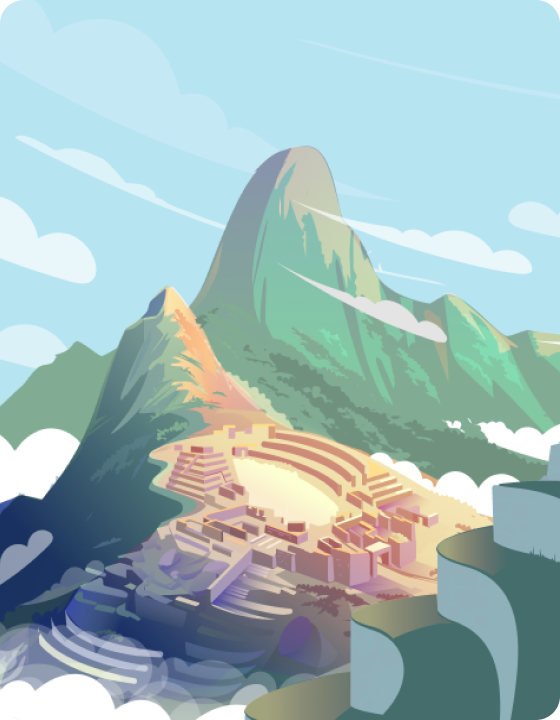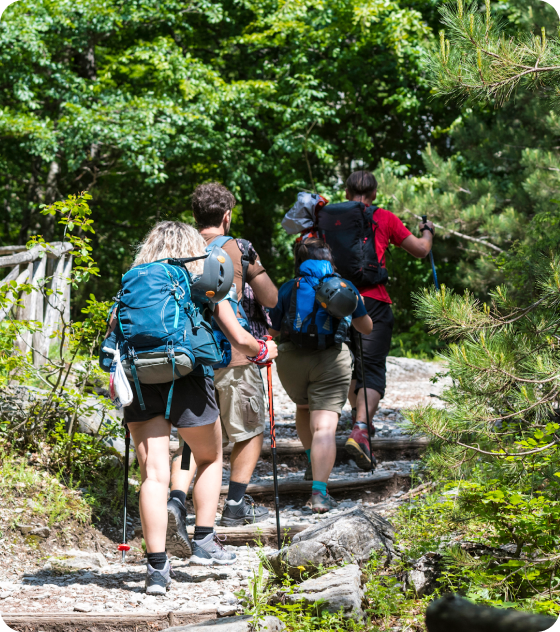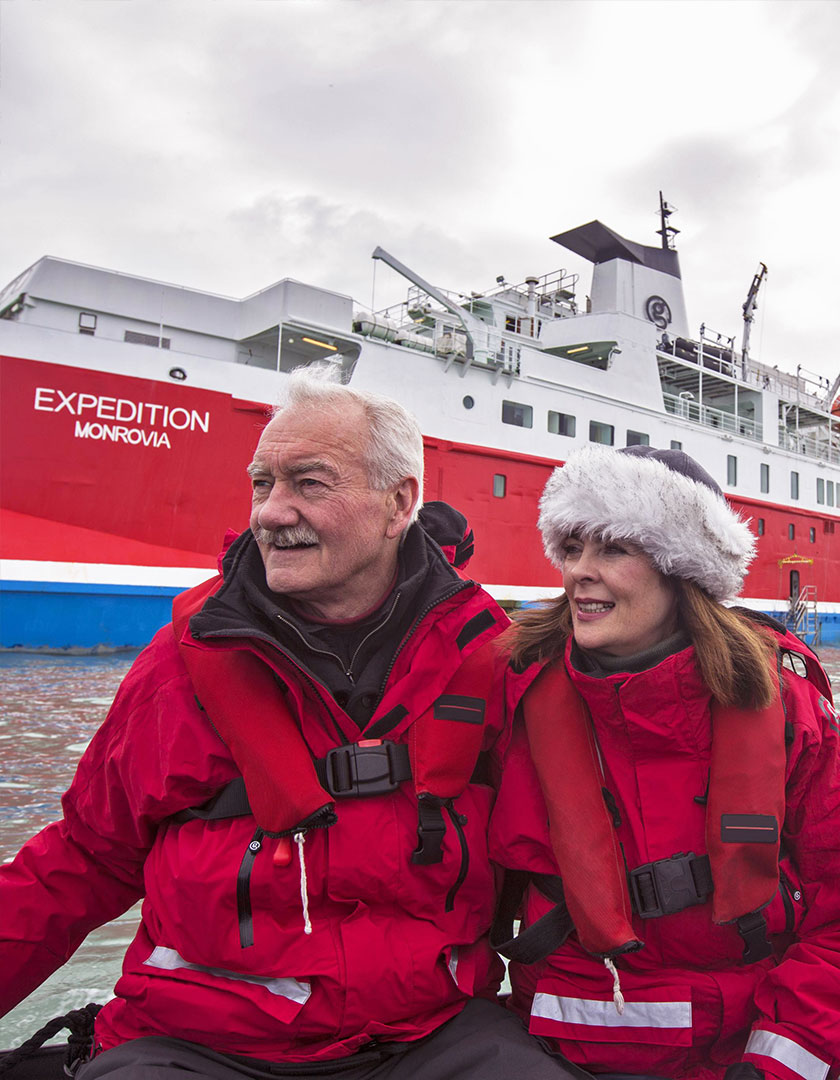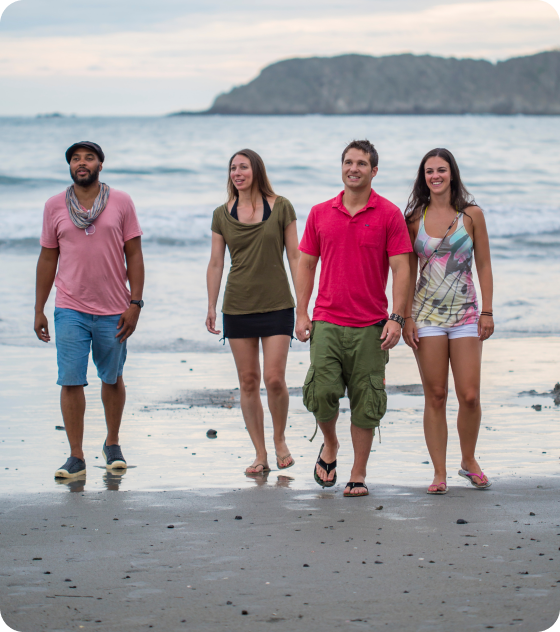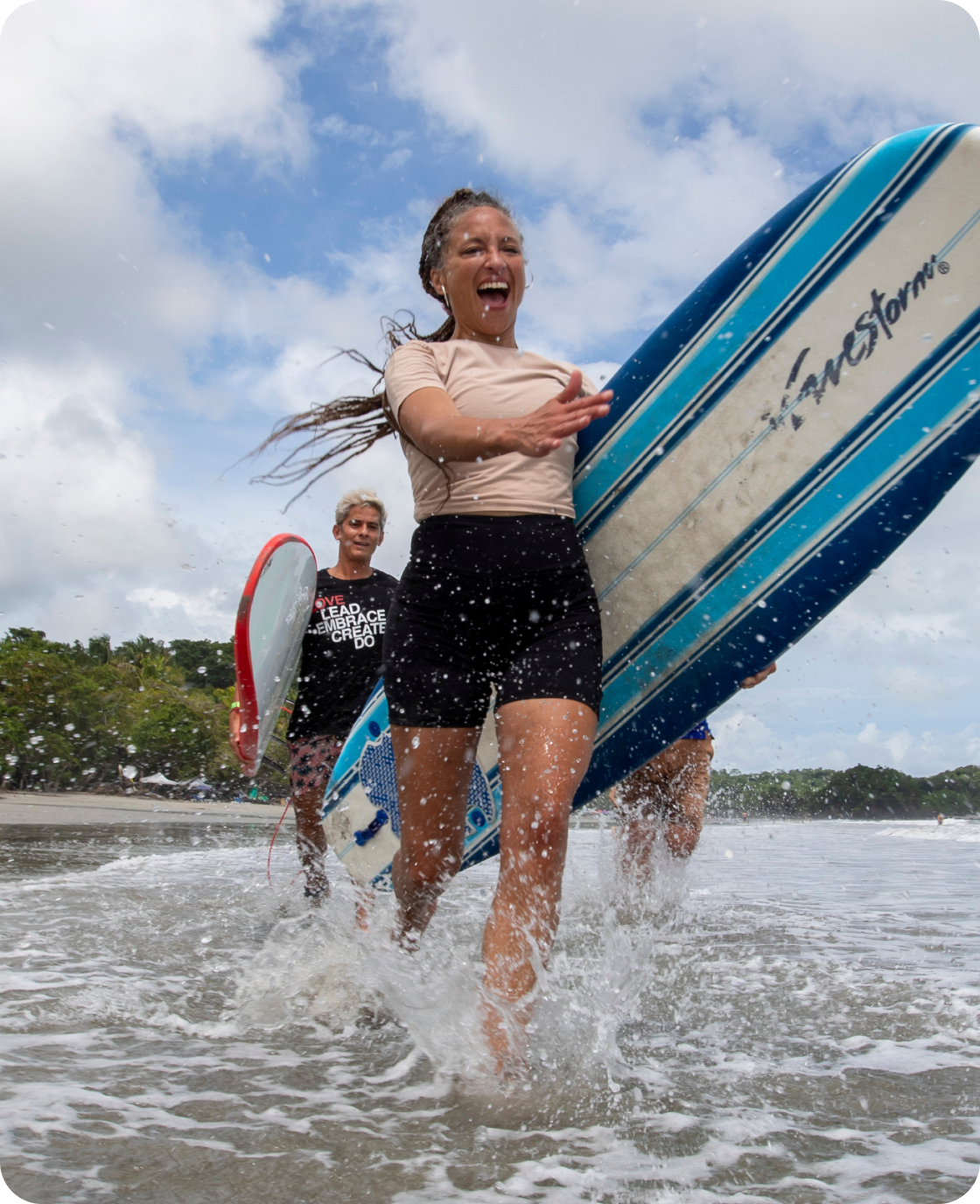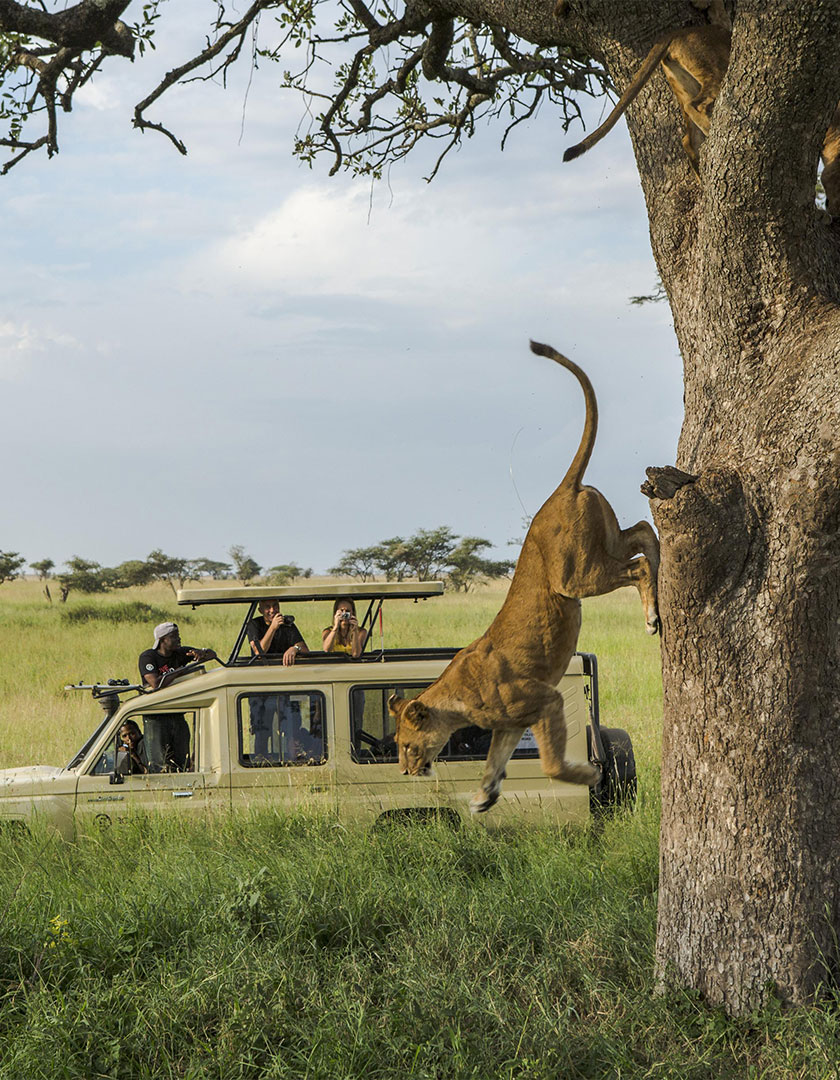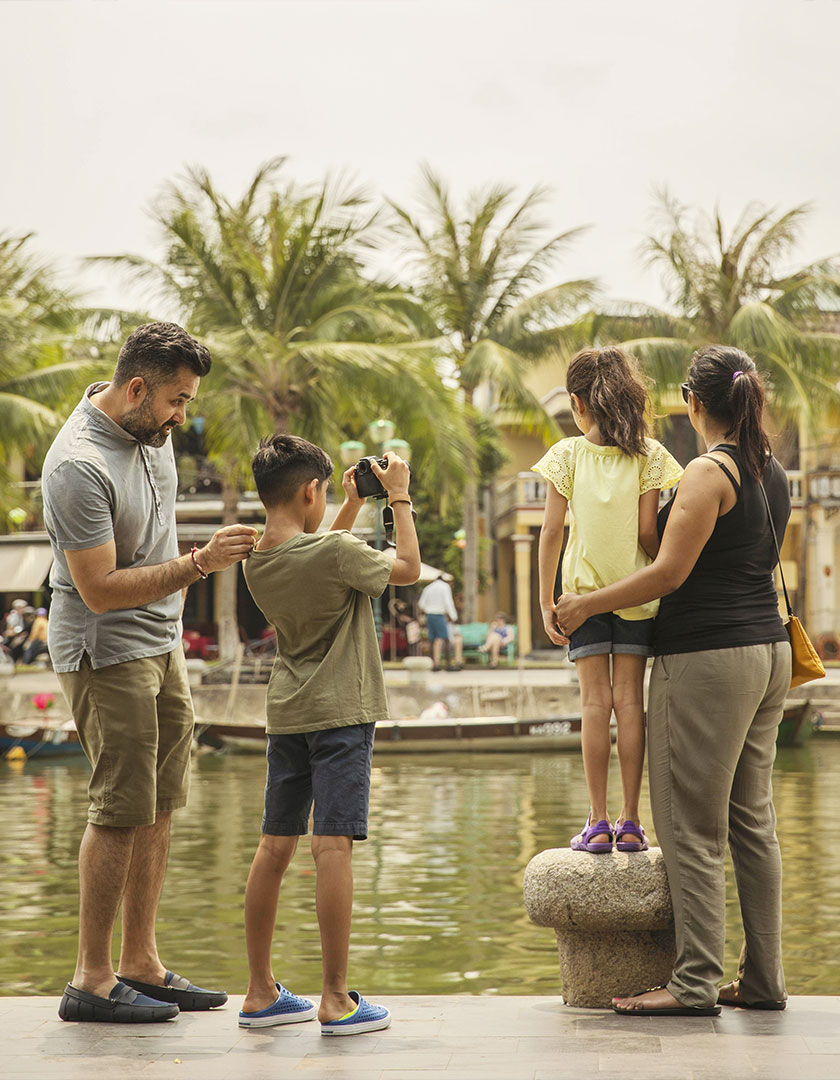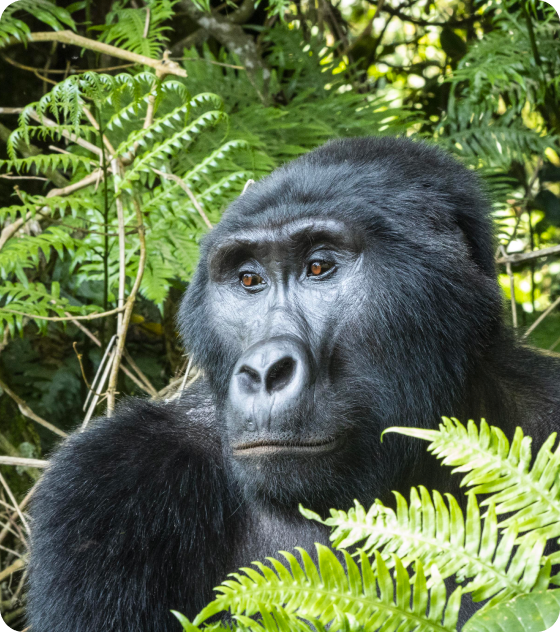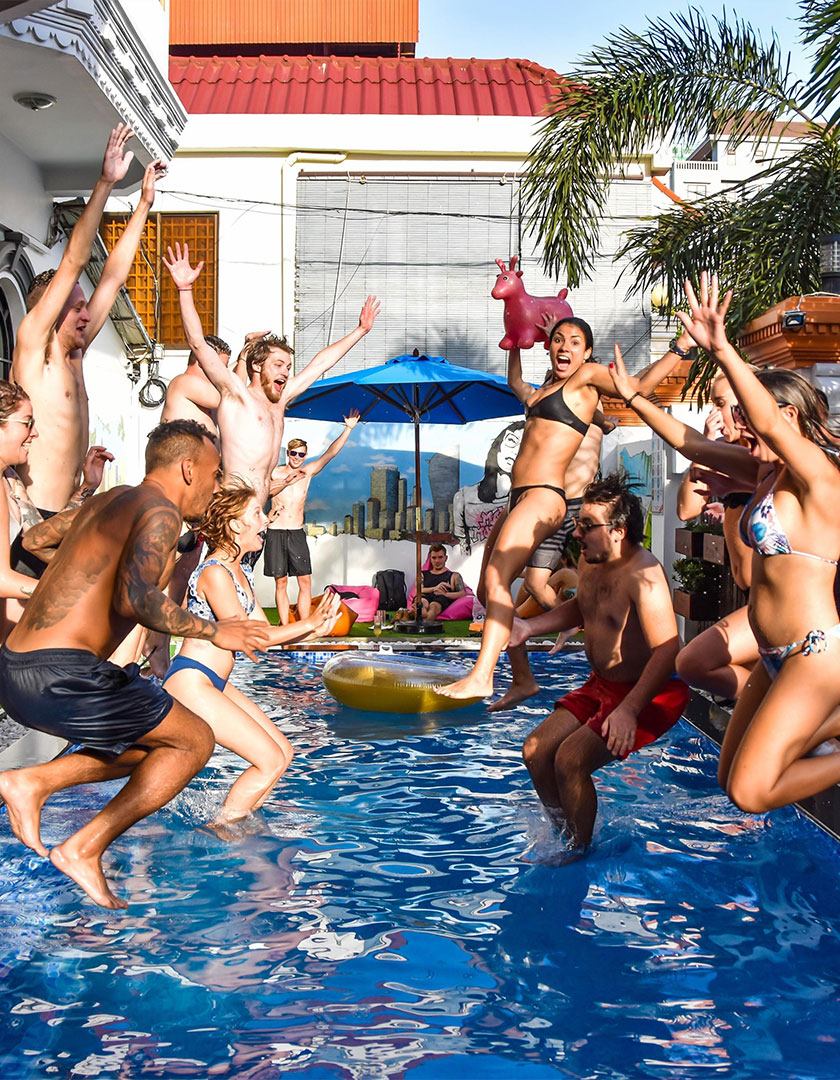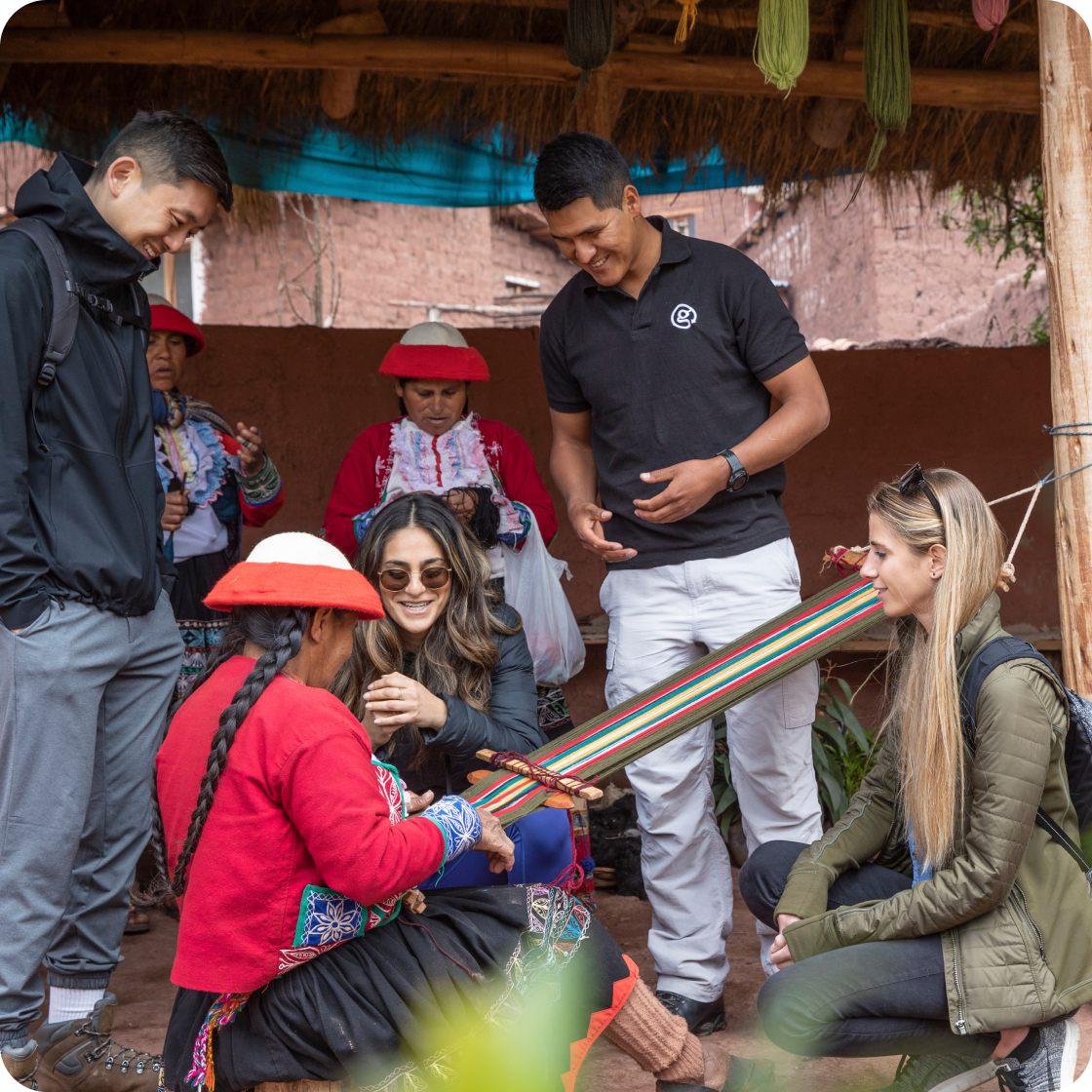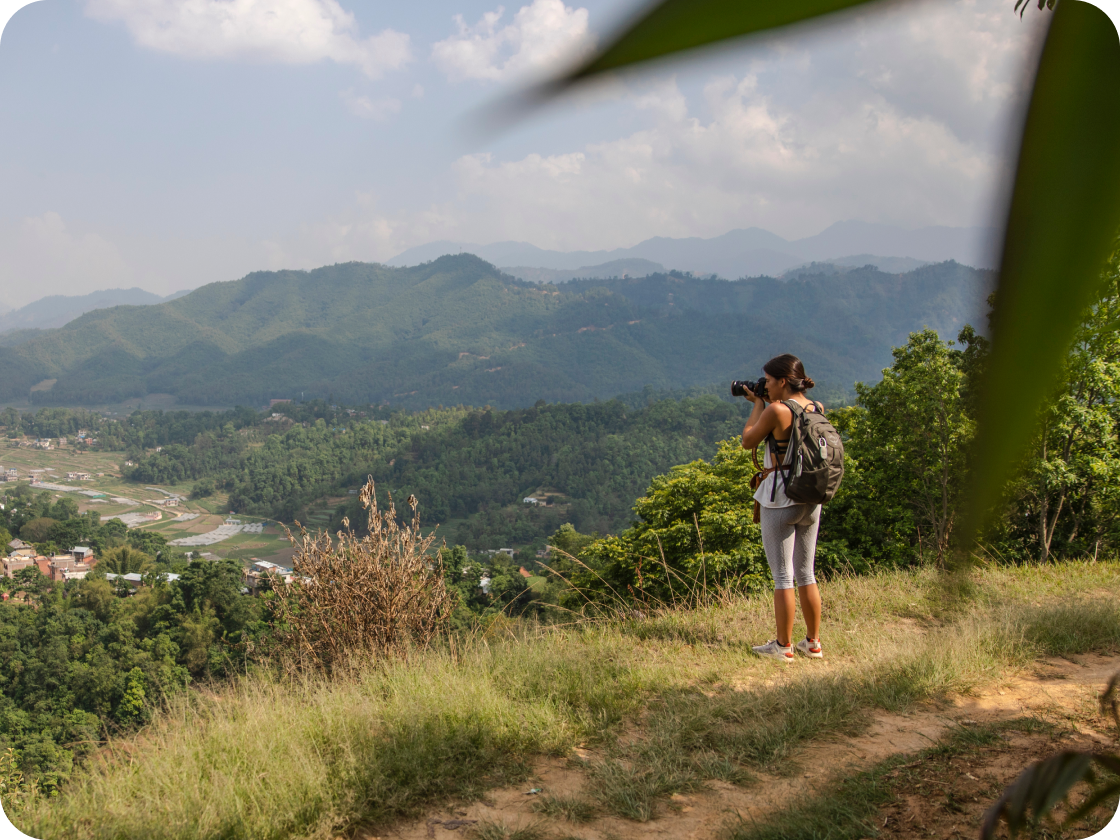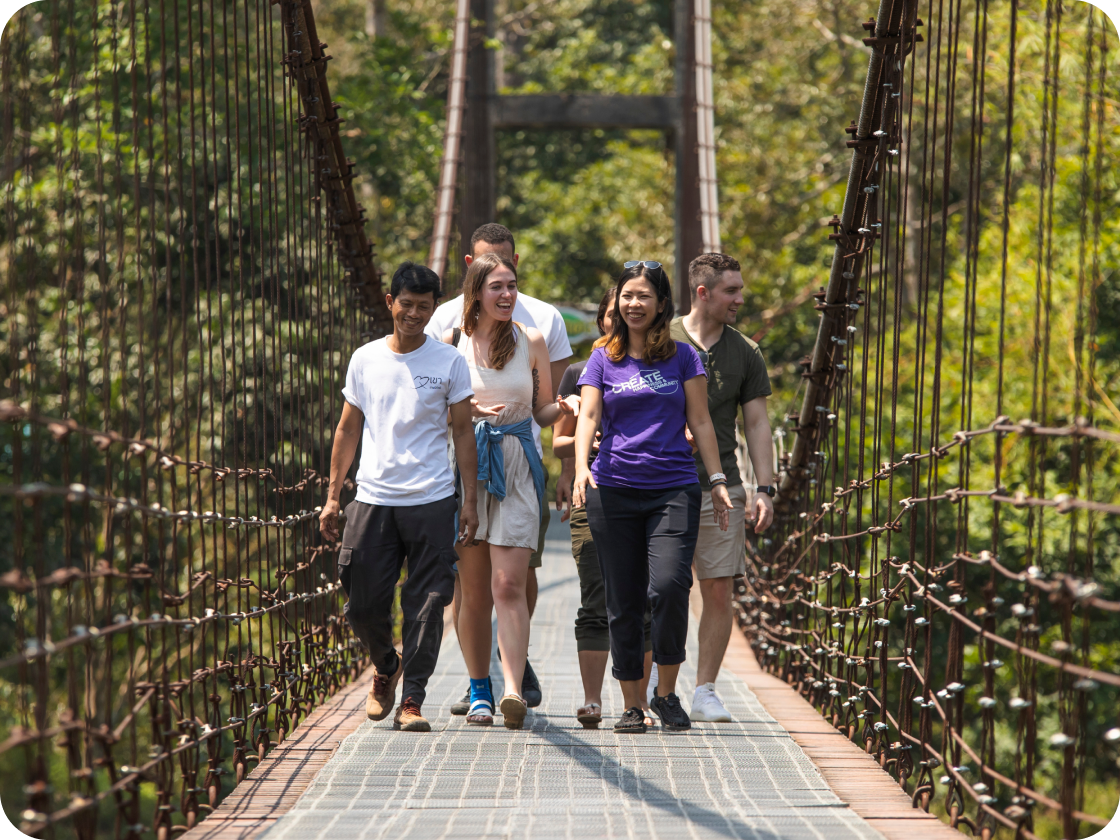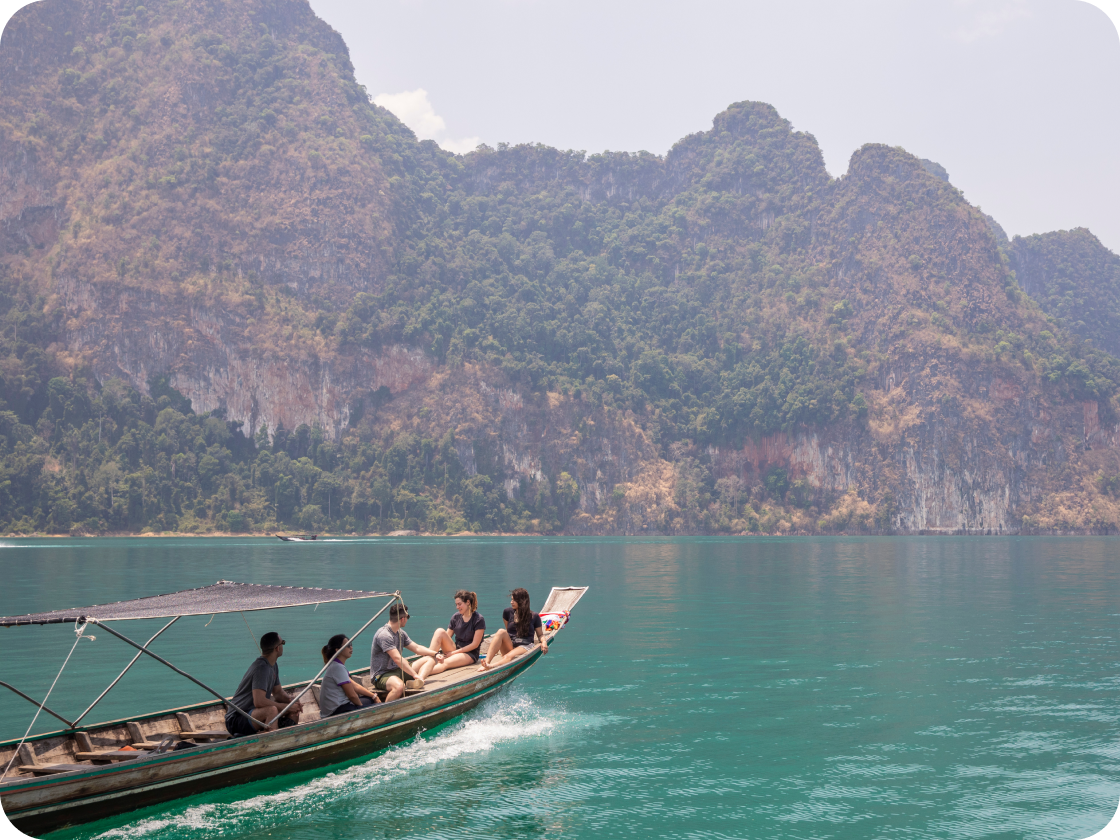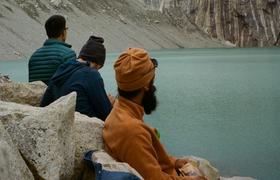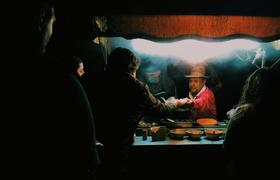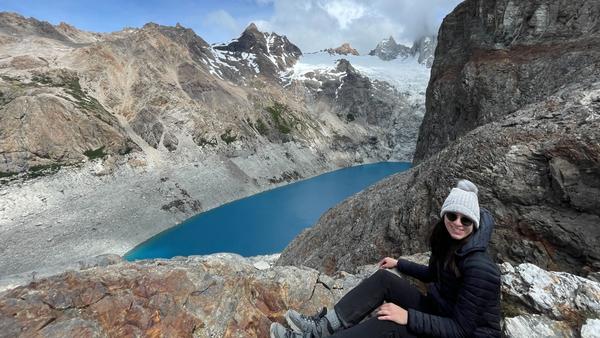
Prepping for Patagonia: 7 tips for an epic trek
Hiking in Patagonia is no easy feat but our very own Jessica Moy helps you get ready to tackle those iconic peaks
Since coming back from my trip to Patagonia, questions I’m often asked by curious travellers include:
“What sort of clothes did you bring?”
“Are hiking poles necessary?"
“Did you train for the treks?”
While booking my 9-day Patagonia Hiking tour I pondered the same questions and frantically searched online for how to prepare for this mammoth journey. It’s hard not to be a little intimidated by the Physical Rating of “Level 4 - Demanding,” but do not fret! I’m here to calm your nerves and tell you first-hand how to properly prepare for your exciting adventure to Patagonia — like your physical fitness, what to pack, money exchange, and general rules of the land that are good to know before you go.
1: Bring the right hiking boots
While most of the trails in Patagonia are fairly easy to walk, there are moments you will encounter rocky, wet, and muddy paths. You’ll also likely experience all four seasons in one day so like a good scout, be prepared! Pack waterproof hiking boots that are a half-size bigger than your regular shoe size as your feet naturally swell while on a trek (no one likes scrunched toes, especially on a hike). I’d also recommend bringing flip-flops or slides for that post-hike relief.
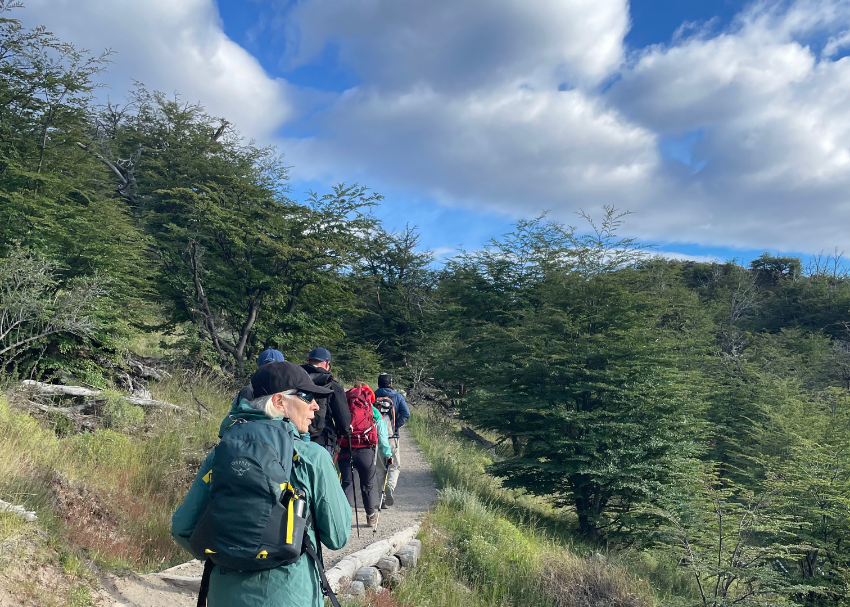
2: Goodbye cotton, hello wool
Not just any ol’ socks will do when galloping upon the mountains of Patagonia. Trekking socks that are made of wool are best as they’re quick-drying and keep the heat in better. This also goes for your clothing as well: base layers, pants, jackets, etc. Wool is superior, or even synthetic, but ditch any cotton material because if it gets wet, it gets heavy and uncomfortable. Plus, it’s more likely to smell even after a few hours.
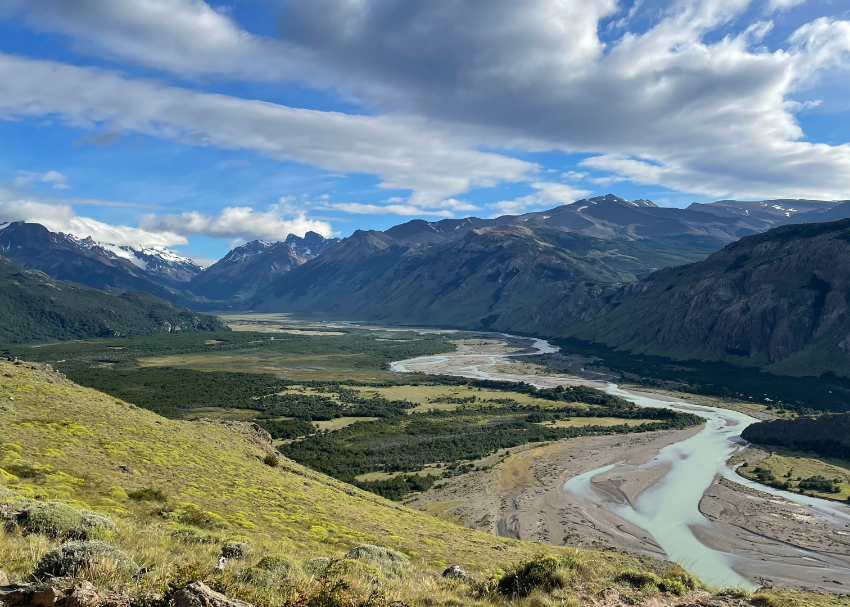
3: Hiking poles are a must
While some inexperienced travellers may think they don’t need hiking poles, let me be the first to tell you: YES YOU DO! Not only do hiking poles protect your knees, they save you from face-planting into rocks when wind gusts catch you by surprise. If you don’t own hiking poles, no sweat, in Patagonia (especially in the town of El Chaltén) you can rent poles at select gear shops for about $10 USD/day. Do it. Do it. Do it.
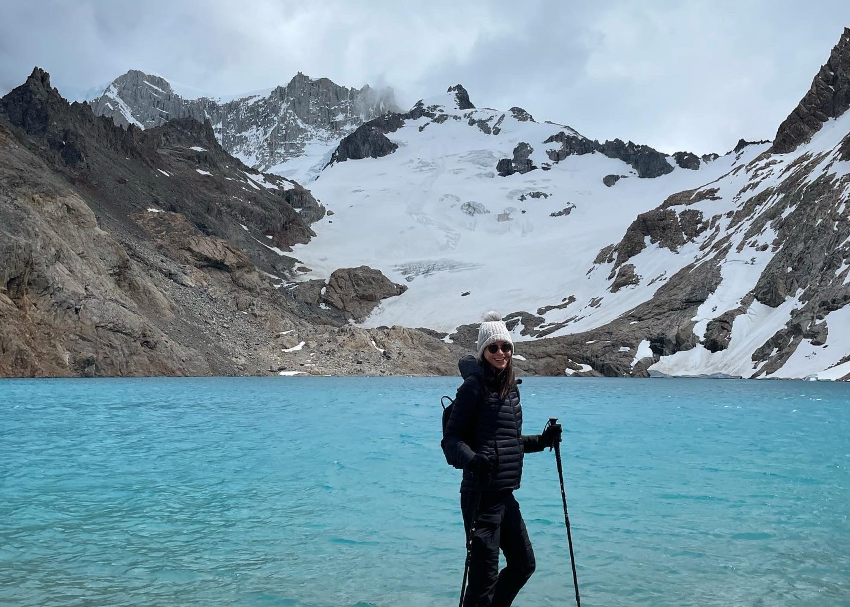
4: Exchange money in big cities
Don’t exchange money for Argentinian pesos in your home country, bring USD and exchange upon arrival in Argentina. Find a Western Union, in my experience they offer the best rate, and you’ll get double what you exchanged in USD. Yes, double. Don’t ask about the logistics, I have no idea how it all works, but I do know it’s good to be a tourist in Argentina. However, when you arrive in Patagonia you’ll have a harder time finding money exchange places so do it all in big cities like Buenos Aires.
While most restaurants and shops in Patagonia do accept credit or debit cards, you’ll get hit with higher exchange rate fees from your bank. Oh, one last thing, do not bring Argentinian pesos back home as they’re basically worth zilch outside of Argentina.
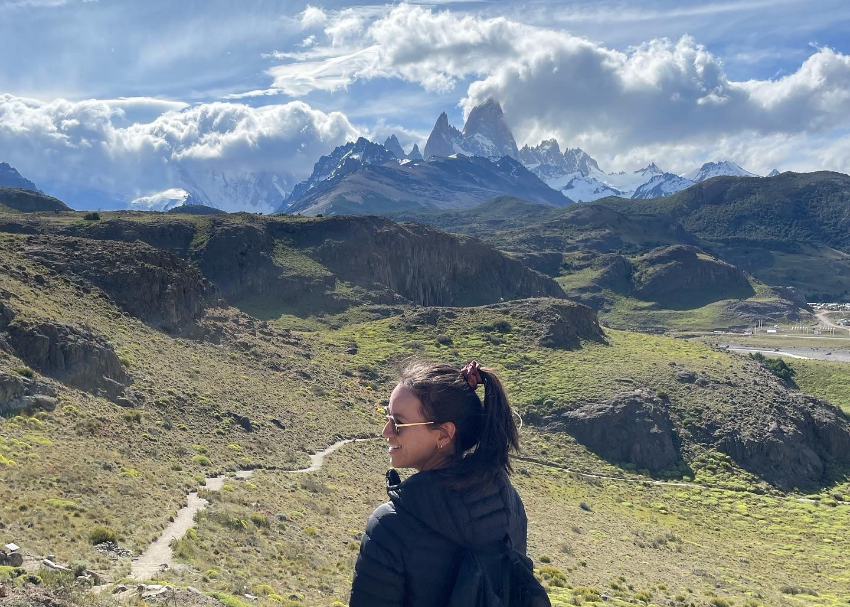
5: Not fit? Not a problem
I’m average on the fitness level scale. I don’t workout every day but I do get in a nice long walk here and there. If you’re generally healthy, you’ll be absolutely fine trekking in Patagonia. There are a variety of hikes you can take ranging from 3 to 21 km (1.85 to 13 mi) that have different elevation levels. Our Chief Experience Officer (CEO) repeated to us every day, “be honest with yourself” and it’s true. Listen to your body and rest as needed. Our CEO also said, “if you’re out of breath it’s not because of the altitude, we are not high enough, it’s because you’re just out of shape.” We love the honesty.
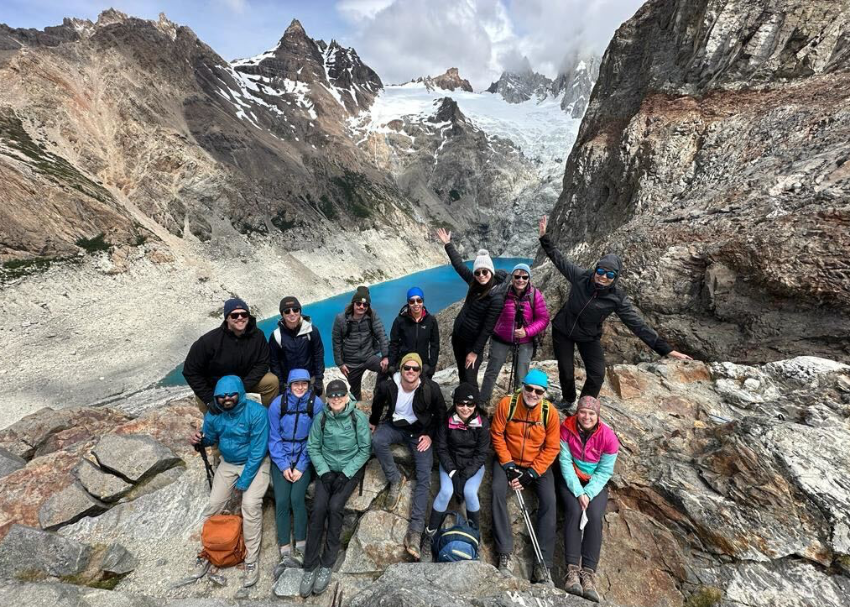
6: No littering
Patagonia is a protected area and littering of any kind is not allowed. And I mean, of any kind. This means if you go to the bathroom in the woods, you have to take your used toilet paper along with you. It also means that if you eat an apple to its core, do not chuck it away thinking it’s organic. The local wildlife isn’t used to eating human food and it can make them sick. So, bring along a small bag to put your litter in while hiking.
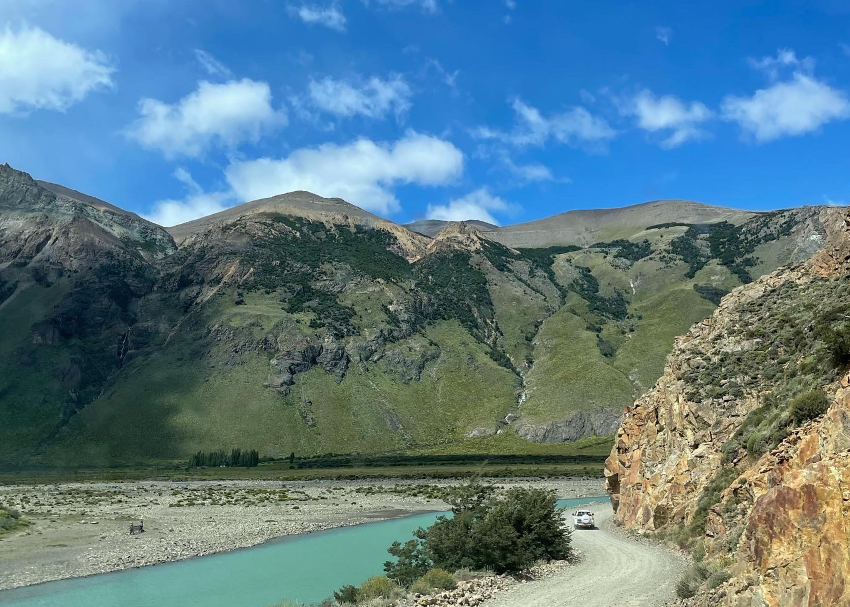
7: Order lunch at the hotel before you hike
Calories, you need ‘em, especially if you’re moving your body all day. Most hotels and hostels in Patagonia offer a pre-packed lunch to take on your hikes that cost anywhere between $10-$20 USD. The night before your hike, order from reception and pick it up in the morning. I chose a turkey sandwich (it was huge!) and it came with water, fruit, nuts, and candies to keep me energized. The best part is when you get to your destination and pull out a few snacks, nothing tastes as sweet as having a bite on top of a mountain with a glorious well-earned view.
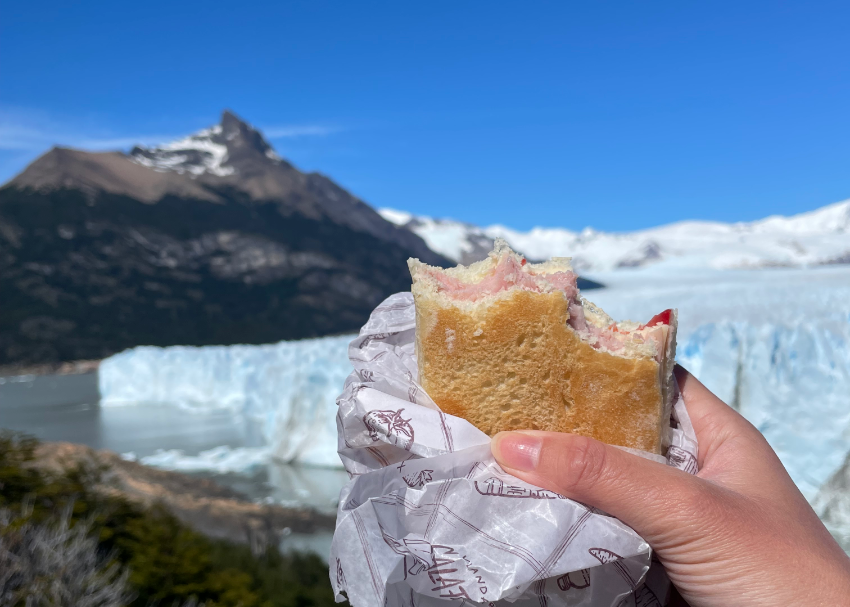
Getting there
Feeling ready to tackle those gorgeous Patagonian peaks for yourself? We bet you are now! Here are a few of our top tours in the region:
Patagonia Hiking
Hike Patagonia in Depth
Torres del Paine - Full Circuit Trek


